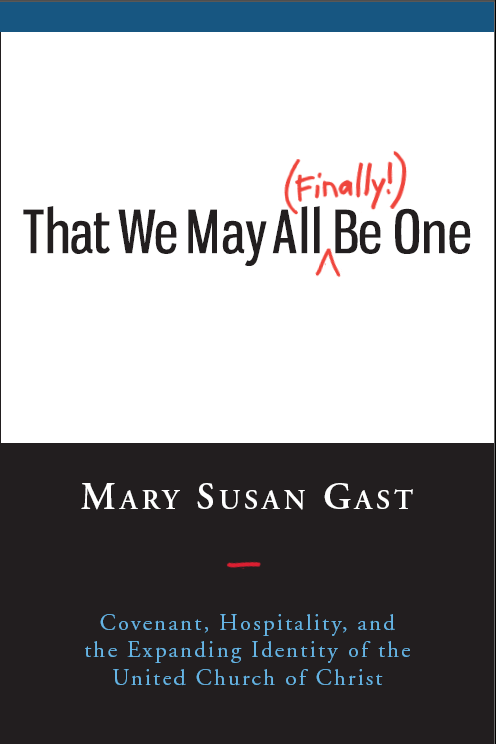
This book is less theory than it is description of how we live and are organized as a church.
The description is based on lots of experience and conversations. It is intended to prompt conversations that engage us all with the various settings of the United Church of Christ; exchanges of ideas and experience with our companions on the journey; and exploration of sources beyond this text. Please stop along the way to talk with others. Our individual stories are the stories of our church. Our shared stories build up the church. This book will, I hope, move us in the UCC to claim the church, in ever deepening ways, even as the church claims us. And I hope that the stories, questions, and histories recorded here will generate insight for the faith journeys of readers who are not part of the United Church of Christ.
The Introduction lays out some basic understandings about the United Church of Christ and raises questions about who we are as the UCC, and how we define ourselves.
Part I begins with our motto, “That they may all be one” and moves into the founding vision of our church, which assumes an array of beliefs, interpretations, and sources of revelation, and is not distressed at the prospect. We will look at the distinctions between unity and unanimity, the possibilities for a unity of multiple voices, and the risk and fluidity of life in covenant.
In Part II we will look to our Local Churches, defined in our Constitution as “the basic unit of the life and organization of the United Church of Christ.” It is within our Local Churches that the welcome table is spread, and where the primary discernment and the front-line determination is made of who is “we” in the UCC. We will look at hospitality, discernment, vitality, conflict, and the ways in which members of Local Churches live in covenant.
In Part III, The Wider Church, we will widen our exploration of covenant to include the relationships between and among Local Churches, Associations, Conferences, and General Synod and its affiliated and associated ministries. We will study and question the ways in which each setting of the United Church of Christ acknowledges and engages the integrity and existence of the other units of church life. We will reflect on the lapses of hospitality that can occur within our church when we come into contact with those we perceive as alien to us. We will face into the difficulty posed when we find it awkward or distasteful to use the pronoun “we” to speak of our church in its entirety.
In Part IV we will examine God’s call to “the whole Church and every member to participate in and extend the ministry of Jesus Christ.” We will consider those ministries in and on behalf of the church for which authorization is required. We will hear from members of Committees on Ministry and Conference and Association staff about the complexities of authorized ministry and the processes of authorization and oversight of ministry for the good of Christ’s church—which may be our most visible and most used proving ground for the workability of covenant and hospitality. We will also look at how congregations call ministers and how ministers seek calls.
Part V calls us back to our identity, asks questions about who we are and the theological grounding of our identity. Are we “freedom’s church?” Are we a united and uniting church that holds in a creative tension all of our independent and disparate voices? Are we “like an archipelago . . . part of the same group, but still islands—separate and alone?” What stories do we tell that incorporate us all and tie us together, that function as our myth, that tell us who we are? Are we caught in a faceoff between autonomy and unity? Are we, in hospitality, open to one another as sources of insight into the ways and will of The Holy? Are we in covenant?
Purchase today from Pilgrim Press![]()
(You may also order from Amazon)